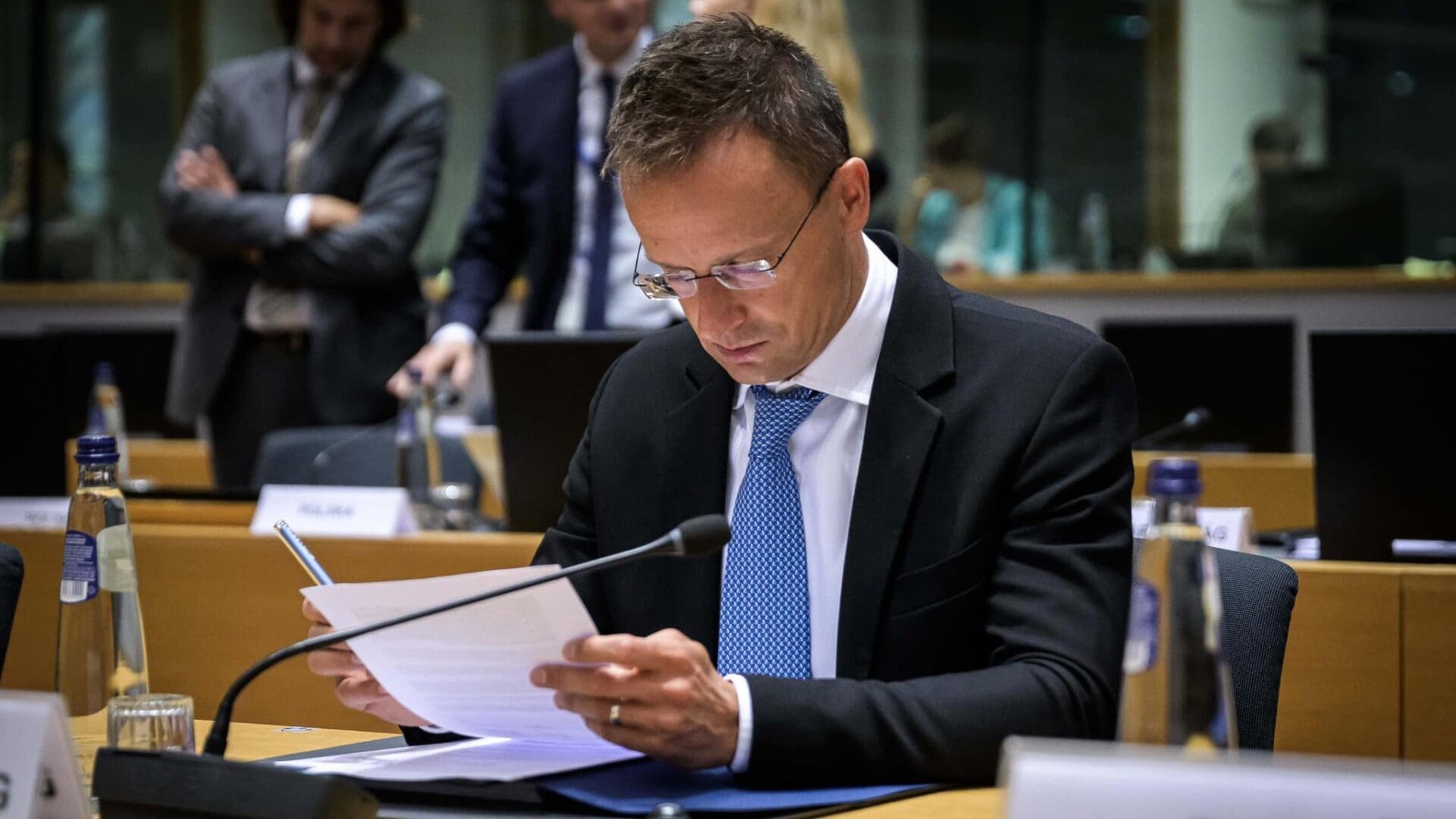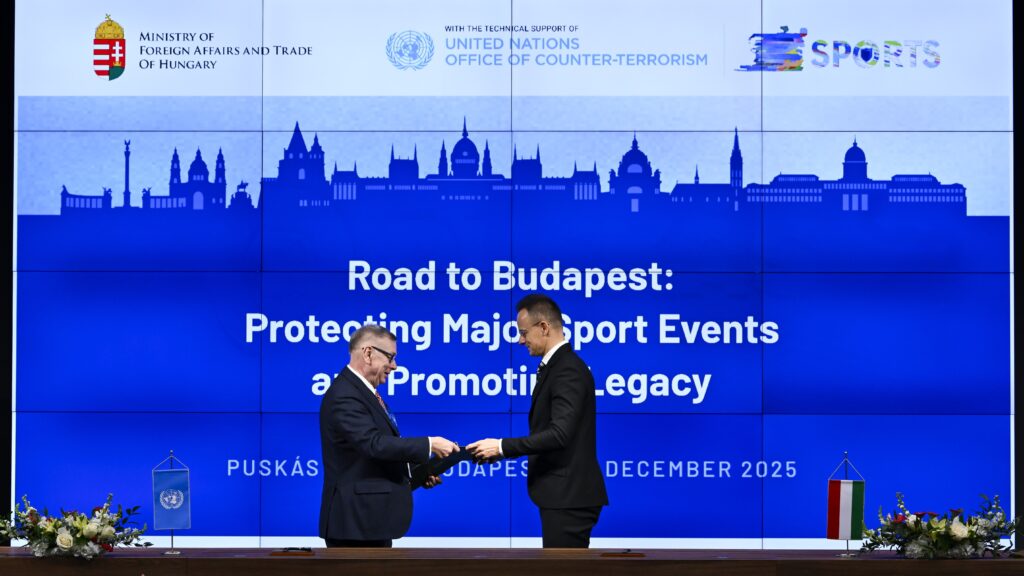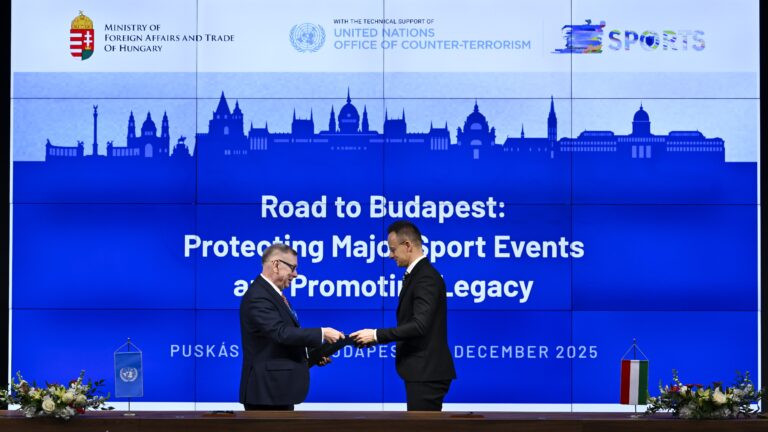The Hungarian government is not willing to engage in any kind of negotiations regarding the financing of arms shipments to Ukraine, whether it’s the previously blocked 500 million euros or the proposed 20 billion euros, until Kyiv removes OTP, the largest Hungarian bank, from its list of international sponsors of the war, Minister of Foreign Affairs and Trade Péter Szijjártó warned in Brussels on Thursday.
Speaking to a live streamed press conference during the break of the EU Foreign Affairs Council meeting, the minister emphasised that the atmosphere in Brussels remains warlike, and there was no talk about peace this time either. Instead, a proposal was presented to allocate 20 billion euros over the next four years for arms shipments to Ukraine, with Hungary providing about 200 million euros from this amount.
He questioned the message the European Union is sending by proposing such an allocation, suggesting that it implies a continued militarisation for the next four years. He expressed concern about the potential loss of lives during this period due to the increased arms supply, and called on Brussels, Berlin, Paris, and Washington to focus on bringing about peace rather than shipping more weapons to Kyiv. He pointed out that the European Peace Facility has already allocated 5.6 billion euros for financing arms shipments, and now there is a request to approve another 500 million euros.
He stated that the Hungarian government
will not consent to the proposed scheme as long as Ukraine fails to remove OTP from its list of international sponsors of the war.
Additionally, he called attention to the fact that Western-owned companies pay significant amounts of corporate taxes in Russia while OTP, with a mere 0.16 per cent market share in the Russian banking sector, has been added to Ukraine’s blacklist.
In response to questions about the European Parliament’s resolution aimed at abolishing the veto right of member states, he underscored that according to the treaties, all parties involved in strategic matters must agree on decisions. He criticised those who
demand respect for European values, the rule of law, and the treaties but are now willing to rewrite the agreements for their own interests.
He also addressed the protests against Hungary’s upcoming EU presidency, stating that the order of rotating presidencies is predetermined and that it does not imply that the rotating presidency holder must agree with the major member states on a certain percentage of issues or follow the liberal mainstream in its every move. Péter Szijjártó emphasised that the European Union is diverse, and its members have various perspectives and opinions.
Related articles:
Source: Hungarian Conservative/MTI







